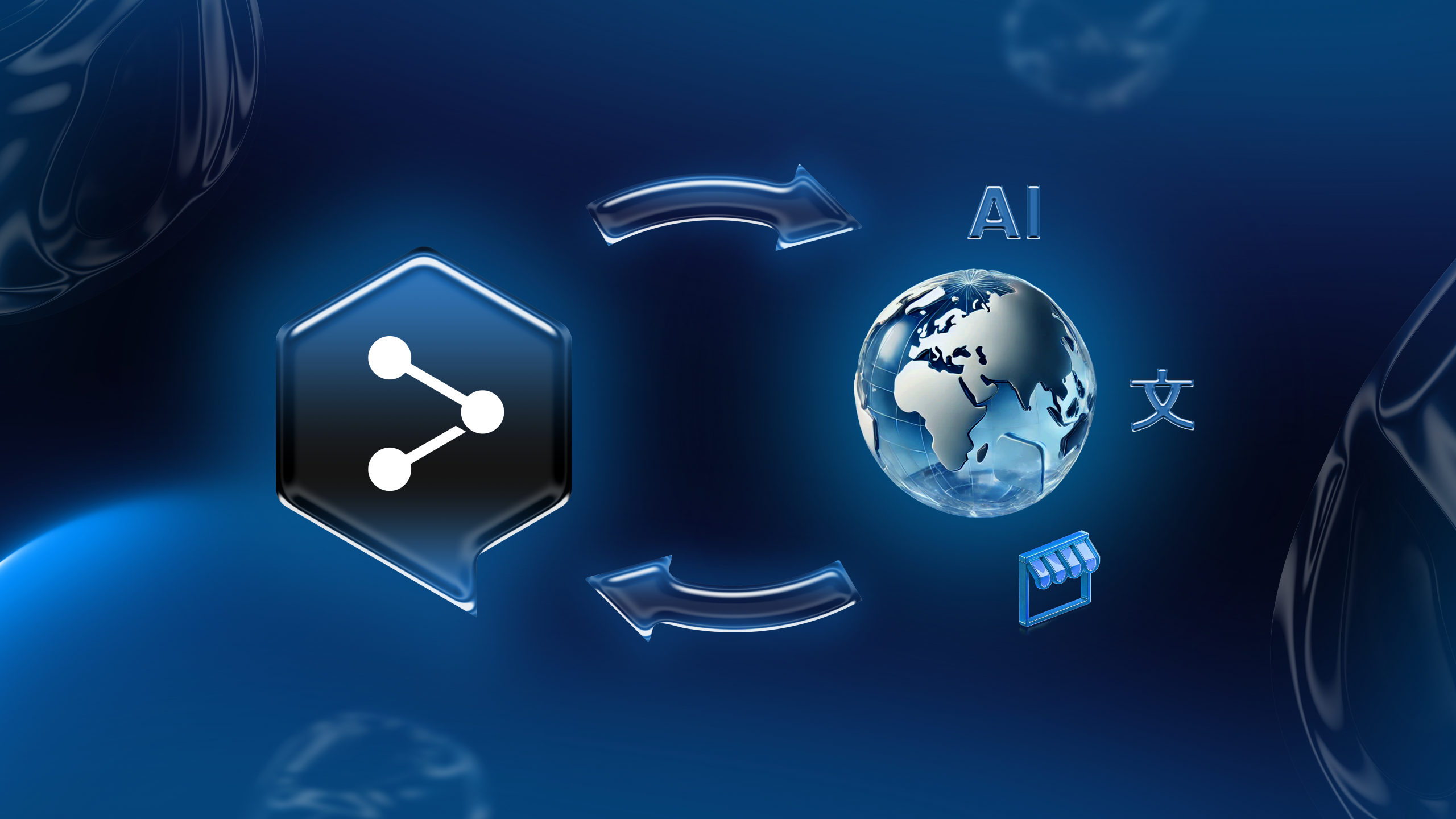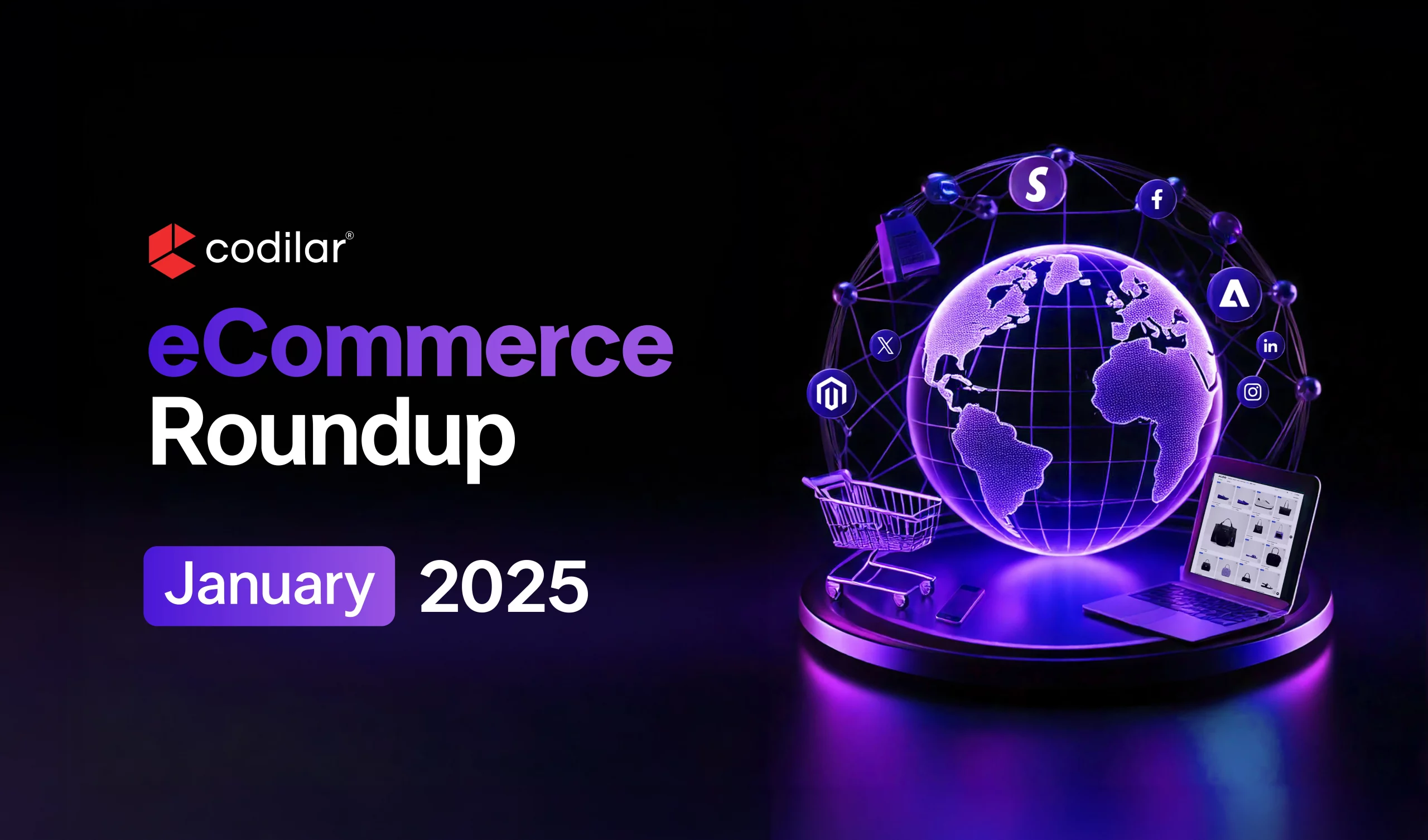Deep L integration helps you scale your international e-commerce effortlessly to new geographies. Through translating your product pages to the local language, you can make meaningful connections with the local audience of each geography, helping you form strong bonds.
This post examines the benefits of DeepL AI translation and its implementation on multilingual e-commerce websites, empowering international e-commerce scaling.
What is DeepL AI translation?
Deep L AI is a cutting-edge machine translation service renowned for its superior translation quality and accuracy. Utilizing advanced artificial intelligence (AI) and deep learning algorithms, DeepL excels at producing translations that are more natural and contextually appropriate compared to many other machine translation tools. It has earned its reputation as a trusted tool for businesses, professionals, and individuals needing reliable translations.
Key Features:
- Supports over 30 source and target languages, including English, French, German, Spanish, Chinese, and more.
- Handles individual text blocks, titles, and objects, making it ideal for businesses that frequently update content.
- Excels in industries requiring precision, like legal, medical, and technical fields.
When is DeepL Integration requried for an ecommerce store?
Expanding your ecommerce business into international markets opens up a wealth of opportunity, but it also presents unique challenges. One of the most critical hurdles is ensuring your web content resonates with local audiences. If you’re operating multiple stores across different countries, each speaking its own language, translation becomes not just an option, but a necessity.
Imagine running separate online stores tailored for France, the Netherlands, Germany, and beyond. To truly connect with customers in each region, you need localized content that speaks their language. This means more than just translating product descriptions; it extends to marketing materials, customer support pages, and even your website’s user interface.
Successfully navigating the complexities of multilingual ecommerce hinges on an effective content translation strategy. By embracing the right tools and processes, you can seamlessly adapt your website to each target market, fostering a stronger sense of connection and driving sales in every corner of the globe.
Why is DeepL-Pimcore Integration Perfect for Multilingual Content?
Pimcore, a leading open-source platform for managing digital assets and content, offers incredible flexibility, especially in handling multilingual content. By integrating DeepL, Pimcore becomes an even more powerful tool for businesses operating in global markets. Here’s why this integration works so well:
1. Automated Translation Workflows
One of the most significant benefits of integrating DeepL with Pimcore is the ability to automate translation workflows. With DeepL, businesses can automatically translate web content, product descriptions, and digital assets in Pimcore, reducing the need for manual translation tasks. This is particularly beneficial when expanding into new markets, as it streamlines the process of creating localized content quickly.
For example, when a new product catalog is added to Pimcore, DeepL can instantly translate the content into multiple languages, ensuring a smooth expansion into global markets without manual effort.
2. Store-Specific Language Configurations
For businesses using Pimcore to manage content for Magento, store-specific language configurations add another layer of efficiency. Each Magento store can be assigned a specific language, ensuring that translations are tailored for the target audience of that store. Pimcore facilitates this by automatically translating the content into the required languages and sending the data directly to Magento’s configured stores. This ensures consistency across stores while saving time and reducing errors.
3. Improved Accuracy and Consistency
DeepL’s advanced AI algorithms ensure that translations are not only accurate but contextually appropriate. This is especially important in industries that rely on specialized terminology, such as medical, legal, or technical fields. DeepL reduces the risk of costly errors, which could arise from manual translations or the use of less advanced translation tools.
In addition, integrating DeepL with Pimcore ensures consistency across all language versions of your content. Pimcore can standardize translation rules and terminologies, maintaining high-quality translations throughout your platform.
4. Cost Savings on Human Translation Services
While human translation services are invaluable for content that requires nuance or cultural understanding, they can be expensive, especially for large volumes of content. By integrating DeepL into Pimcore, businesses can automate the translation of routine content, such as product descriptions, marketing materials, and manuals. This significantly reduces the reliance on costly human translators, saving both time and money.
5. Faster Time-to-Market for Multilingual Content
Time-to-market is crucial for businesses, especially in e-commerce and technology sectors where product launches happen frequently. DeepL integration in Pimcore speeds up the process of creating multilingual content. For instance, as soon as a new product is launched, businesses can swiftly update product catalogs, marketing materials, and website content in various languages. This accelerates the reach to international audiences and helps capture opportunities faster than competitors.
6. Simplified Management of Multilingual Digital Assets
Managing multilingual content across various platforms and regions can become overwhelming. DeepL’s integration with Pimcore allows businesses to centralize their translation management. This is done within Pimcore’s Digital Asset Management (DAM) module, where content translations can be synchronized across all language versions.
This centralized approach ensures that all translated content is up-to-date and accurate, while reducing the risk of content duplication or inconsistency. Pimcore developers can work more efficiently by accessing a single source of truth for all translations.
7. Enhanced SEO for Multilingual Websites
SEO still drives qualified organic traffic to ecommerce websites. DeepL’s high-quality translations can help businesses create localized content that resonates better with regional audiences, improving SEO rankings.
The translations are tailored not just linguistically but also culturally, considering local search behavior and keywords. This means that businesses can optimize their multilingual content for hig
her visibility in international markets, while you tweak other factors related to ecommerce seo.
Why Choose Pimcore for DeepL Integration?
Pimcore is a popular choice for integrating with DeepL because of its flexibility, scalability, and ease of use. Pimcore’s API and plugin architecture allow developers to integrate DeepL seamlessly, either through the backend or through custom workflows that trigger translations as needed. The platform provides businesses with a unified system for managing translations directly within the Pimcore interface integration, ensuring that content updates are reflected in real-time.
How DeepL-Pimcore Integration Works?
Step-by-Step Process:
1. Configure Translation Settings:
- Add the Base URL, API Key, and choose between DeepL Free or Pro versions in Pimcore’s Translation Panel.
- Mark the integration as active.
2. Select Classes and Fields:
3. Translate Content:
- Use the “Translate Fields” button within Pimcore objects to specify target languages and fields for translation.
- For bulk operations, select multiple objects in a folder and apply the translation.
4. Review Results:
Check translated content in the Pimcore interface. Use the Notes & Events section for success and error logs.
Key Notes:
- Default language setup in Pimcore acts as the source for translations.
- All objects in a folder must share the same parent class for bulk translation to work.
What Happens When DeepL is Integrated with Magento?
Magento, another widely used e-commerce platform, can benefit from DeepL integration as well.
However, the integration might not be as smooth as with Pimcore due to Magento’s architecture and its reliance on third-party extensions. While it’s possible to integrate DeepL with Magento, there are some challenges involved, such as ensuring that all content types (products, categories, pages) are automatically translated, and that translations remain consistent across the system.
For this, you would need an adobe commerce agency who have expertise working with these three platforms – Adobe commerce, pimcore and Deep L.
Challenges with Directly Integrating DeepL with Magento
Magento is a popular ecommerce platform, but integrating DeepL directly with Magento can present certain challenges. These include:
- Complex Customization
Magento may require significant customization to handle multilingual content effectively. Without proper integration, it can be difficult to maintain consistent content across multiple languages. This could lead to errors, inconsistencies, and a fragmented user experience for customers across different regions. - Resource-Intensive Setup
Direct integration between DeepL and Magento may require additional development resources to configure the translation system properly. Ensuring that translations are applied correctly across product descriptions, pages, and other assets could involve time-consuming setup processes. - Scalability Issues
Magento might face scalability issues when dealing with large volumes of content or frequent updates in multiple languages. As a result, businesses could experience slower performance, especially when handling heavy translation workloads, which can impact user experience. - Translation Quality Control
Although DeepL is highly accurate, integrating it directly with Magento may make it harder to ensure the quality of translations, particularly for specialized terminology. Without the added layer of workflow and quality control, there’s a higher risk of errors or inconsistency across content.
Translation for Magento via Pimcore
From Pimcore, we are translating the data and sending it to Magento’s configured stores. For each Magento store, there are specific languages assigned within Pimcore. Through this integration, we ensure that translations are tailored to the languages specified for each store. By checking the configured stores in Pimcore, we dynamically translate the content into the required languages and push the translated data seamlessly to Magento.
What We Achieved Through This Integration:
- Language-Specific Translations: Content from Pimcore is accurately translated to the languages assigned to individual Magento stores.
- Streamlined Process: By automating translation workflows, manual effort is minimised, ensuring efficiency and consistency.
- Real-Time Updates: Translations in Pimcore are immediately reflected in Magento, maintaining synchronization across platforms.
- Scalable Solution: This setup accommodates multiple stores and languages, making it ideal for businesses with a global presence.
Conclusion
One of the most effective way to grow your ecommerce busines would be to expand into new teerroritiees. Until recently, the cost of providing localized content for ecommerce expansion was cost-prohibitive, hindering global growth.
However, Deep L AI-powered translation capabilities and integration make entering new markets more accessible and affordable than ever before.
Leading ecommerce platforms like Adobe Commerce empower businesses to easily scale into new geographies by creating a Multistore presence with a single license, simplifying ecommerce expansion. DeepL Translation integration with Adobe Commerce/Magento provides a powerful method to fully utilize the potential of Adobe Commerce’s multistore capabilities and effectively streamline localized content.
By deeply understanding the capabilities of DeepL Translation and utilizing Adobe Commerce expertise, businesses can identify the most effective strategies to scale into new territories. A well-defined strategy using Adobe Commerce Multistore is crucial for better market penetration and accelerated ecommerce expansion.










